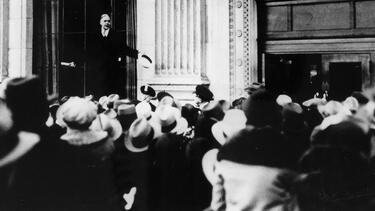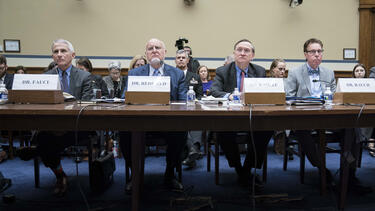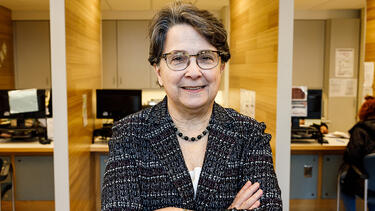All Insights Articles
Crashes and COVID-19 in Historical Context
The stock markets are reeling as fear and uncertainty about the global pandemic grow. We asked Yale SOM’s William Goetzmann, whose research includes financial history, to put the volatility into historical perspective.

Why a Pandemic Leads to Panic Buying
We asked Yale SOM’s Nathan Novemsky, an expert in the psychology of judgment and decision-making, for his thoughts on how consumers are behaving during the COVID-19 pandemic and how they’re likely to view companies’ actions in the aftermath.

What the Plunge in the Stock Market Means for Individual Investors
We asked Yale SOM’s James Choi, who has examined the implications of academic research for personal finance, what studies say about how to respond to a market crash.

Why the WHO Was Afraid of Crying ‘Pandemic’
Yale SOM’s Saed Alizamir, with Francis de Véricourt of ESMT and Shouqiang Wang of the University of Texas at Dallas, recently published a study that uses game theory to play out the tradeoffs that the WHO and other public agencies face as they try to give timely warnings while maintaining their credibility.

How Should the U.S. Government Respond to COVID-19?
On March 12, a group of public health experts assembled by Yale SOM’s Dr. Howard Forman released a proposal for a set of emergency public health, healthcare, and emergency support measures to respond to the growing COVID-19 outbreak.

Study Finds Declaring Bankruptcy May Not Hurt Future Employment Prospects
Hundreds of thousands of Americans declared bankruptcy during the Great Recession. A new study co-authored by Yale SOM’s Paul Goldsmith-Pinkham examines the effect on their employment prospects.

Suzanne Lagarde ’14 on Giving Back
We talked with Dr. Suzanne Lagarde ’14, CEO of Fair Haven Community Health Care, about delivering healthcare to those who need it most.

Coronavirus Update: How Far Has the Virus Spread and What’s Next?
Increased testing capacity is key to unlocking greater understanding of COVID-19 and learning how to slow its spread, according to Professor Howard Forman.

Male Scientists Praise Their Own Research More
According to a study co-authored by Yale SOM’s Olav Sorenson, male scientists are more likely than their women colleagues to use words like “novel,” “excellent,” and “unique” to describe their own work in the titles and abstracts of research articles.

The Jack Welch That I Knew
Jack Welch, the legendary CEO of GE, died on March 1. Yale SOM leadership expert Jeffrey Sonnenfeld, who knew him for decades, writes that Welch was flawed but brilliant, an innovator and icon of industrial imagination.
